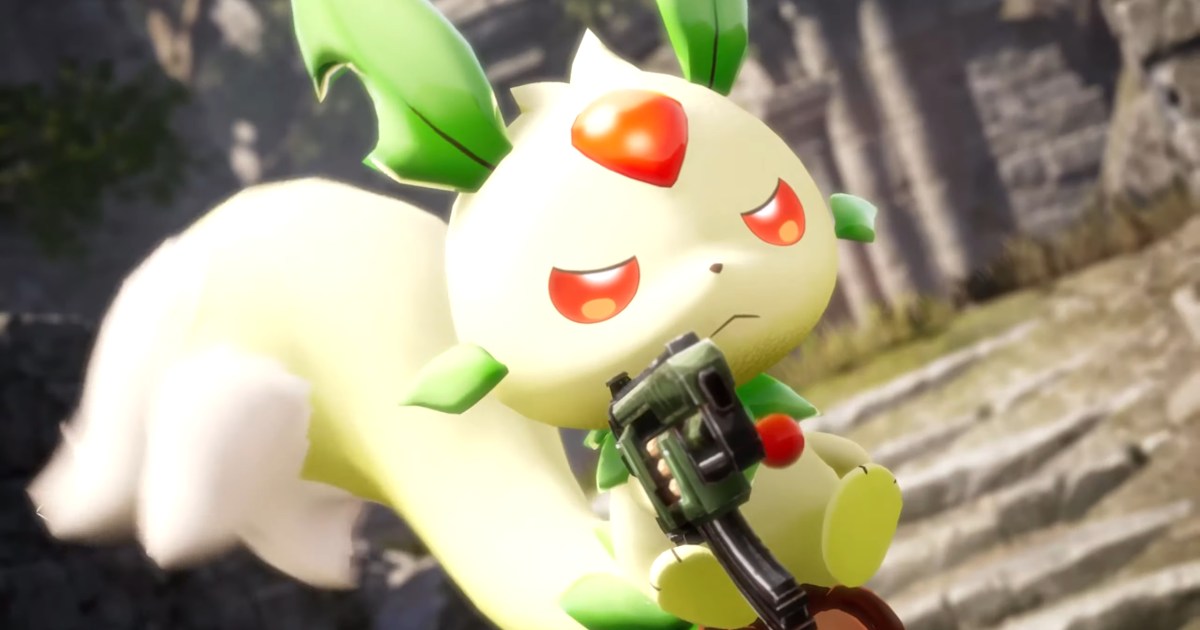2024 was a rough year for the game industry. It was dominated by layoffs, significant strategic shifts from some of the biggest companies in the industry, and gigantic live service flops that demonstrated just how hard that space is to break into. In last year’s iteration of this article, I wrote that it felt like I was covering a “video game industry bound to head into an odd 2024 that lacks the known quantity bombshells of this year and continues to reel from layoffs.” That certainly proved to be true.
That’s not to say it was all dour. Some fantastic games were released, with some surprise viral successes like Palworld and Black Myth: Wukong showing how the right games since have the potential to resonate with millions of players. The video game industry is hurting, though, and looking toward 2025, the launch of Nintendo Switch’s successor and Grand Theft Auto VI will have to do a lot of heavy lifting to get the industry out of this rut. These news stories shaped the video game industry’s tumultuous 2024.
Layoffs did not slow down
2023 was historic when it came to the number of video game industry layoffs that took place during it. Somehow, 2024 surpassed it. Companies like Embracer continued their downsizing initiatives, but it wasn’t the only major culprit this year. That dubious honor goes to Microsoft, which has laid off nearly 3,000 Xbox developers this year following its acquisition of Activision Blizzard. While there was hope that the finalized purchase would lead to a positive future for the employees of both companies, the reality was that Microsoft had to cost-cut, gutting several parts of Activision Blizzard and shutting down Bethesda-owned studios like Tango Gameworks, Arkane Austin, Roundhouse Studios, and Mighty Dog Games.
Krafton saved Tango Gameworks and Hi-Fi Rush and Crash Bandicoot developer Toys for Bob bought itself out from Microsoft and Activision, but most other game developers weren’t so lucky. Throughout 2024, companies like Sony Interactive Entertainment, EA, Riot Games, Embracer Group, and more laid off developers, shut down studios, and canceled video games in development. “Survive until 2025” currently seems to be the mentality of many in the video game industry; hopefully, things get better next year rather than getting worse.
Xbox starts becoming a multiplatform publisher

Layoffs weren’t the only thing that happened in the wake of Xbox’s acquisition of Activision Blizzard. Over the course of 2025, the company also started to shift into becoming a multiplatform publisher. Throughout the first months of 2024, it brought games like Pentiment, Grounded, Sea of Thieves, and Hi-Fi Rush to competing platforms. Throughout the rest of the year, PS5 releases were also confirmed for newer games like Indiana Jones and the Great Circle, Doom: The Dark Ages, and The Outer Worlds 2. While some Xbox games like Senua’s Saga: Hellblade 2 and Microsoft Flight Simulator 2024 remained Xbox console exclusives, it’s clear that the tides are shifting.
Microsoft may drop console exclusivity from its first-party game planning even more in 2025 and beyond. Xbox leadership has been more wishy-washy when it comes to confirming how prevalent and widespread this initiative will be. But Microsoft is running ads that show how a lot of things other than an Xbox Series X or Xbox Series S console can be considered, and Xbox and CEO Satya Nadella said that being an Xbox fan “is about being able to enjoy Xbox on all your devices.” Those both speak to the obvious shift taking place. We’ll have to wait and see if games like Avowed and Fable wind up going multiplatform in 2025.
Xbox Game Pass got a lot more complicated

Xbox is not out of the woods just yet, as it also brought some major shakeups to its Xbox Game Pass subscription service in 2024. Ahead of Call of Duty: Black Ops 6’s launch into Xbox Game Pass on day one, Microsoft decided to make all of its subscription service tiers more expensive. It raised the annual price of Game Pass Core to $75, increased PC Game Pass’ monthly subscription price to $12, and Game Pass Ultimate to $20 a month.
Microsoft also replaced Game Pass for Console with Game Pass Standard, a $15-a-month subscription tier that neither supports Xbox Cloud Gaming nor includes day-one titles on the service. Those who wanted to play games like Black Ops 6 and Indiana Jones and the Great Circle on day one through Game Pass had to pay for the most expensive version of the gaming subscription. This broke Game Pass’ allure as the best deal in gaming.
Black Myth: Wukong and more become viral hits

The biggest games of 2024 weren’t the ones that could be easily predicted heading into the year. In January, the Pokémon-with-guns survival game Palworld rocketed to success when it hit early access due to its ridiculous concept. Helldivers 2 followed suit in February, thanks to its unique bombastic take on the co-op shooting formula. EA Sports College Football 25 even managed to outgross Call of Duty: Black Ops 6. While the virality of all those games was nothing to balk at, the most popular game of the year was Black Myth: Wukong. This adaptation of Journey to the West became a cultural phenomenon in China and impressed worldwide audiences with beautiful visuals and Soulslike combat.
According to data from SteamDB, Black Myth: Wukong peaked at a concurrent player count of 2,415,714 on PC alone just two days after its release. Black Myth: Wukong sold 10 million copies in its first few days on the market, and that number of copies sold seems to be well over 20 million at this point, although data on it has not been shared recently. It speaks to the power international markets still hold in the game industry and how massive success can be found when embracing those studios and the cultures of those countries. In a grim year for the video game industry, it’s important to remember successes like this.
Concord becomes one of the biggest game flops of all time

With the mighty successes also come the grand failures. Suicide Squad: Kill the Justice League started 2024 off on a rocky note, but the failure of Concord got even more attention. This hero shooter from Sony Interactive Entertainment and former Destiny developers at Firewalk Studios was positioned by the PS5 maker to become the next big thing. It was the headlining reveal of May’s State of Play, had a Secret Level episode green-lit (and several other weekly cutscenes animated) prior to its release, and reportedly had a development budget somewhere between $200 million and $400 million dollars. When its launch rolled around, it was disastrous.
Launching just a few days after Black Myth: Wukong, SteamDB shows that this multiplayer game could only attract a measly 697 concurrent players all-time high on PC. Within two weeks of its release, Sony took the game down from sale to reevaluate its future. In October, Sony confirmed Concord would not return and would shut down Firewalk. Just a couple of weeks after Concord, Sony would release the Game of the Year-winning Astro Bot, which it promoted a lot less but got a lot more adoration for. Concord is a rare big-budget misfire from PlayStation and has been brought offline, never to be played again.
Nintendo sues the developer of Palworld

Palworld may have become a viral success upon its launch in January, but that success did not go unnoticed by The Pokémon Company. In February, The Pokémon Company put out a statement confirming that it was aware of Palworld’s existence and would “investigate and take appropriate measures to address any acts that infringe on intellectual property rights related to the Pokémon.” In September, Nintendo and The Pokémon Company confirmed they would sue developer Pocketpair. “This lawsuit seeks an injunction against infringement and compensation for damages on the grounds that Palworld, a game developed and released by the Defendant, infringes multiple patent rights,” their statement on the matter mentioned.
While Nintendo’s statement didn’t go into specifics, Pocketpair eventually revealed that three patents were at the center of the lawsuit. They had to with how players could actively throw a ball-like device to capture creatures and transition from walking to riding or flying on said creatures. Interestingly, the lawsuit does not address any Pal designs that look eerily similar to Pokémon. As clone games become vogue again, the results of this case will likely set parameters for how much developers can copy games they enjoy.
PS5 Pro is finally revealed and released… for $700

After over a year of speculation, Sony finally revealed and released the PlayStation 5 Pro in 2024. It featured a better GPU than the base PS5 and used machine learning technology to upscale games through PlayStation Spectral Super Resolution. On PS5 Pro, more console games can consistently hit 60 frame-per-second frame rates at higher resolutions. Games like Marvel’s Spider-Man 2 and Ratchet & Clank: Rift Apart look fantastic when played on Sony’s new hardware. The PS5 Pro was not a slam dunk for Sony, though, mainly because its visual improvements were incremental, and the console itself cost $700.
The jump from PS5 to PS5 Pro is less recognizable than the difference between a base PS4 and PS4 Pro. On top of that, some games were running worse on PS5 Pro. Plus, PS5 Pro does not come with a disc drive or stand for the console. Considering that it is already $200 more expensive than a regular PS5, those were some pretty massive caveats PlayStation fans had to deal with. The PS5 Pro still stands as the biggest gaming hardware release of 2024, considering we did not get a new Nintendo console. Its lofty price tag is making us start to think about how much Nintendo’s Switch successor and future PlayStation and Xbox consoles will cost, too.
Read the full article here















